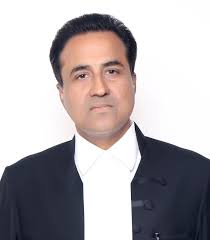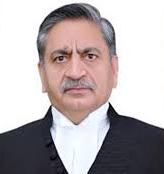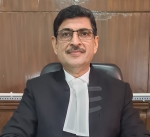- Home
- About Us:
- Legal Services Authority
- Functions and Duties
- Achievements of SLSA
- Fundamental Duties Booklet
- Districts/Tehsils Legal Service Authority
- Action Plan for the Year 2023
- Legal Aid Clinics
- Legal Awareness Camps
- Lok Adalat
- Legal Aid Beneficiaries
- Under Trail Prisoners
- Payment Made under Victim Compensation Scheme
- Rules and Regulations
- Orders/Circulars/Notifications
- Schemes
- Welfare Schemes
- 1.JKSLSA Schemes
- 2. Scheme for Para-Legal Volunteers
- 3.Schemes for Legal Services to Disaster Victims through Legal Services Authorities) Scheme, 2010
- 4. Victims of Trafficking and Commercial Sexual Exploitation) Scheme, 2015
- 5.(Legal Services to the Workers in the Unorganized Sector) Scheme, 2015
- 6.(Child Friendly Legal Services to Children and their Protection) Scheme, 2015
- 7.(Legal Services to the Mentally Ill and Mentally Disabled Persons) Scheme, 2015
- 8.(Effective Implementation of Poverty Alleviation Schemes) Scheme, 2015
- 9. (Protection and Enforcement of Tribal Rights) Scheme, 2015
- 10. (Legal Services to the Victims of Drug Abuse and Eradication of Drug Menace), Scheme, 2015
- 11. (Legal Services to Senior Citizens) Scheme, 2016
- 12.(Legal Services to Victims of acid attacks) Scheme, 2016
- 13.Victim Compensation Scheme, 2013
- 14.Victim Compensation Scheme, 2019
- 15. Special Assistance Scheme for COVID Mortalities (SASCM/Saksham), 2021
- Panel Lawyers
- PLVs
- Contact Us
Legal Services Authority
History and Object
To achieve the objectives of the Constitution of India, The erstwhile State of J&K vide Govt. Order No. 1223 dated 26.10.1987, constituted a board called J&K State Legal Aid and Advice Board for providing free legal services to the weaker sections of the community. In the Year 1997, The J&K State Legal Aid and Advice Board was repealed by Jammu and Kashmir State Legal Services Authority Act 1997, which provided for establishment of State Legal Services Authority, High Court Legal Services Committee, District Legal Services Authorities and Tehsil Legal Services Committees to provide free and competent legal services to the weaker section of the society and to ensure that opportunities for securing justice are not denied to any citizen by reason of economic or other disabilities, and to organise Lok Adalats to ensure that the operation of the Legal System promotes justice on the basis of equal opportunities. In August 2019, the Parliament passed the J&K Re-organization Act 2019, which came into force on 30.10.2019, by which the State of J&K was bifurcated into two Union Territories called UT of J&K and UT of Ladakh. By virtue of the same legislation, J&K State Legal Services Authority Act 1997 was repealed and the Legal Services Authority Act 1987 (Central Act) came into force in the UT's of J&K and Ladakh. The UT of J&K has constituted the State Legal Services Authority vide notification dated 2nd of December 2019.
Messages

Hon’ble Mr. Justice Arun Palli, Chief Justice, High Court of J&K and Ladakh
(Patron-in-Chief, J&K Legal Services Authority)

Hon’ble Mr. Justice Sanjeev Kumar
Executive Chairman, J&K Legal Services Authority

Hon’ble Mr. Justice Vinod Chatterji Koul
Chairperson, High Court Legal Services Committee
Legal Service Authority/Committees- Their Constitution and Function
1. State Legal Service Authority
In terms of S.6 of Legal Services Authority Act 1987, J&K State Legal Services Authority has been created, with Hon'ble The Chief Justice as its Patron-in-Chief. Hon’ble Mr. Justice Sanjeev Kumar, Judge, High Court of J&K and Ladakh is presently Executive Chairman of the Legal Services Authority, whereas, Ms. Shazia Tabassum is Member Secretary of the Authority. Besides this, Presidents of Bar Associations Jammu/Srinagar, Advocate General, Secretaries to Home, Finance and Information Departments of Government of J&K are the ex-officio members of the State Authority. The State Legal Services Authority besides being the Supervisory Authority over the District / Tehsil Legal Services Authorities/ Committees is obliged to lay down policies for making legal service available, make allocation of funds to other Authorities/ Committees, organise legal aid camps, encourage settlement of disputes by mediation and conciliation, conduct/organise Lok Adalats and related activities.
2. High Court Legal Service Committee
The State Legal Service Authority (SLSA) has constituted the High Court Legal Service Committee (HCLSC) in exercise of its power under 8 A of the Act. Hon’ble Mr. Justice Rajnesh Oswal is the Chairperson of the committee, whereas, Sh. Jeewan Kumar, Sub Judge is the Secretary of the Committee.The main function of the HCLSC is to provide legal services to the eligible persons, to conduct Lok Adalats for cases pending before Hon’ble High Court and to encourage the settlement of disputes by way of negotiation, arbitration and conciliation. HCLSC is also duty bound to execute all those schemes and to launch all those programmes as are framed by the National Legal Services Authority (NALSA) and State Legal Services Authority (SLSA).
3. District Legal Service Authorities
Twenty District Legal Service Authorities (DLSA) have been constituted in the UT of Jammu and Kashmir by the Government under S.9 of the Act. Each District Authority consists of the District Judge concerned as its chairman.
4. Taluk Legal Service Committee
There are 63 Taluk Legal Service Committees functioning in the state at present that have been created & constituted by State Authority in terms of S.11-A of the Act. Each Taluk Committee comprises of the Sub Judge/Munsiff of the concerned Taluk as its chairman.
Who can be the Beneficiaries of free Legal Services?
The following categories of persons are entited to free legal service in terms of S.12 of the LSA Act
i) Persons whose annual income does not exceed Rs.3,00,000/- (in the Supreme Court Legal Services Committee the limit is Rs. 5,00,000/-).
ii) A Members of SC/ST.
iii) Women or a child.
iv) Victims of trafficking in human beings or beggars
v) Victims of mass disaster, violence, flood, drought, earthquake, industrial disaster etc.
vi) Disabled persons / Mentally ill Persons.
vii) Persons in custody.
viii) Industrial Workmen
ix) Transgenders.
x) Senior Citizens.
xi) Person suffering from HIV.
Modes of Providing Legal Services
Following are the modes of providing the free legal services :-
(i) By payment of court fee, process fee, expenses of witnesses, preparation of the paper book, lawyers fee and all other charges payable or incurred in connection with any legal proceeding;
(ii) Through representation by a legal practitioner in legal proceedings;
(iiI) By supplying certified copies of judgement, orders, notes or evidence and other documents in legal proceedings
(iv) By drafting , Copying, Printing of legal documents;
(v) By giving legal advice on any legal matter;
(vi) Through meditation centres or family counseling Centres;
Lok Adalats-Mechanism and procedure
All the authorities and the Committees constituted under the provisions of the LSA Act are obliged to organise lok adalats in order to provide a forum for the litigating people to settle their cases amicably. Even those disputes that are yet to be instituted in any court can be settled in a lok adalat A case can reach a Lok Adalat for settlement under the following cirumstances:
(i) if the parties to the dispute agree; or
(ii) one of the parties to the dispute makes an application to the Court for referring the Case to the Lok Adalat for settlement and if such court is prima facie satisfied that there are chances of such settlement; or
(iii) If the court is satisfied that the matter as an appropriate one, to be taken cognizance of by the Lok Adalat. Award of the Lok Adalat is deemed to be a decree of a Civil Court and is final as no appeal or revision is provided therefor. Even the Court fee paid is elgible to be refunded. To provide sanctity to this mechanism constitution of the Benches of the Lok Adalats been taken care of by the LSA Act, and persons of repute, knowledge and integrity have to be the members of the Lok Adalat.
Legal literacy and Legal Awareness campaign especially in Backward and remote areas- Launching of programmes and setting up of camps
The important task before the legal service functionaries is to make the legal service law meaningful for those belongings to weaker and poor sections of the society, for whom same has been brought on the Statute Book. This can be done by educating the said sections of the society about the various provisions of the LSA Act and the Rules and the Regulation framed there under. This underprivileged class of society has to be made to understand about the benefits of not only legal service law, but they also have to be made aware about all the social welfare legislations including the laws on Human Rights, the Fundamental rights enshrined in the constitution and the provisions of the Right to Information Act etc. The downtrodden and the backward class of the society is to be told as how the settlement of the disputes in the Lok Adalat saves their time, money and energy, and how it not only maintains but improves the relations of the rival parties. It has to be made Known to them that negotiated settlement ends the animity between the fighting parties for all times to come, there being no appeal, no revision whatsoever. Unlike in a litigation before a regular court where parties to the dispute end up with animosity, anger and bad blood between them, in a negotiated settlement, relations of the fighting parties get improved and all the terrifying memories of the litigation are for- gotten for all times to come. The parties part with the spirit of good will and mutual trust with promise to meet again. Illiterate class of the society who are weak, backward and downtrodden are not expected to know that constitution has guaranteed to them some valuable rights which are fundamental in nature. Such of the rights as pertain to right to livelihood and right to live with dignity and honor etc. are very-very important for this lower class of society as we may call it. It is, therefore, very important to promote awareness among the masses about all these rights. It becomes imperative therefore, as is ordained in the LSA Act and the Rules, to make the weaker sections of the society aware as to how shall they seek protection of their fundamental rights, and how are the Human Rights violation sought to be checked. To do this, we have to reach out to the door steps of the needy, to tell them all about this. Such class of the society needs awareness that in case they are not in a position to vindicate their such right, given their economic conditions, they shall be provided legal services and legal assistance, which will be entirely free. These people have to be enlightened as to how access to justice for all is possible and practicable. It is in this back ground that more emphasis is on convening of legal literacy and legal awareness programmes where the common people have to be informed that legal services is not a charity, but is a way to provide justice for all. Stress is on setting up of legal literacy and legal awareness camps in far-flung and remote areas of the State, to tell the common masses there that rich alone shall not have the right to enjoy the fruits of Justice but poor shall equally have the access to justice.